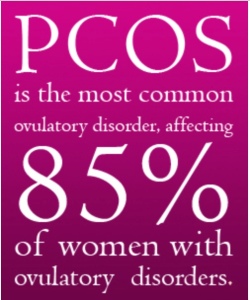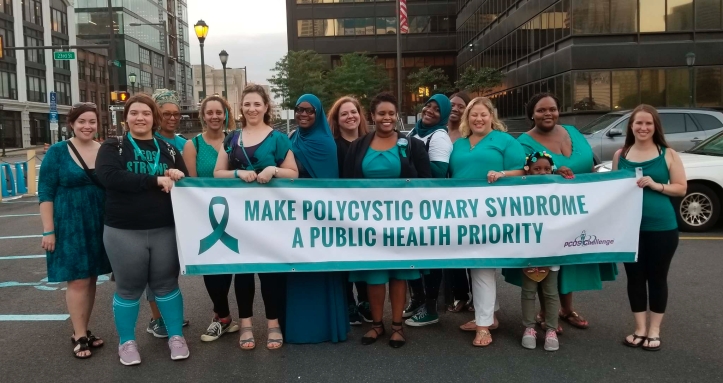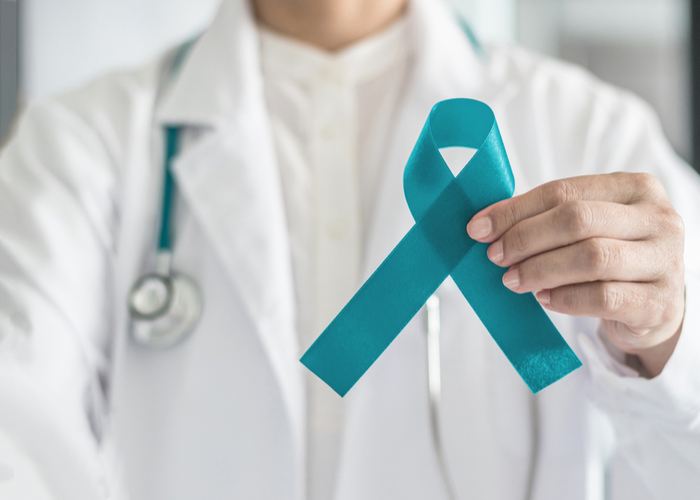Wednesday September 11, 2019 – By: Lara Ahmed

The month of September is National Polycystic Ovary Syndrome Awareness Month. It’s the time of the year to raise awareness of PCOS and show support to those suffering from it, and also to learn more about it and follow the advancement in its treatment.
What exactly is PCOS?
 PCOS is a hormonal condition which covers a wide range of physical and emotional symptoms. It continues to affect women worldwide, and has no exact cause or cure. The disease is considered one of the leading causes of infertility, but the hardships certainly don’t end there. Back cramps, excessive hair growth, weight gain, and severe acne are just some of the symptoms women with PCOS have to deal with daily.
PCOS is a hormonal condition which covers a wide range of physical and emotional symptoms. It continues to affect women worldwide, and has no exact cause or cure. The disease is considered one of the leading causes of infertility, but the hardships certainly don’t end there. Back cramps, excessive hair growth, weight gain, and severe acne are just some of the symptoms women with PCOS have to deal with daily.
One aspect that makes PCOS stand out from similar conditions is that it often presents more visible symptoms that are targets for social mockery. According to the U.S. Department of Health & Human Services, PCOS affects approximately 1in 10 women of reproductive age. However, exact rates are harder to pinpoint especially when viewed on a global scale. PCOS Awareness Month provides a unique opportunity to look at a disease that affects so many, yet seems to concern such few.
Fixing more than infertility
Often, the first word to jump out at someone researching PCOS is “infertility”. PCOS negatively impacts the ovaries, affecting how well the egg is developed and released. Since this can result in irregular or even missed periods, women can have trouble getting pregnant. Though there is no mistaking the physical and emotional distress of not being able to bear children, medical practitioners sometimes see this as the only real reason to focus on PCOS treatment. Unfortunately, this is likely why many women go undiagnosed until they start planning to have children. Looking at this through a local lens, it seems likely that modern Egyptian culture is contributing to the problem- since mental health and basic comfort is still seen by some as second to a woman’s ability to have kids.
The stigma makes it harder
 Obesity, excessive bodily hair, and acne are typically considered terrible features for any woman to possess. Since women with PCOS often experience some or even all of these symptoms, public mockery makes it even harder- especially since it can come from strangers and loved ones alike.
Obesity, excessive bodily hair, and acne are typically considered terrible features for any woman to possess. Since women with PCOS often experience some or even all of these symptoms, public mockery makes it even harder- especially since it can come from strangers and loved ones alike.
PCOS wages war on a woman’s body, and as with all wars some tragedies go unnoticed. Another piece of the PCOS puzzle is how it relates to even more disorders. Diabetes and sleep disorders are strongly considered to be the most dangerous diseases that PCOS patients have a high risk of developing. Mental health remains the most forgotten casualty, as mood disorders and low self-esteem are common side effects of suffering in silence. To make matters worse, when the symptoms of PCOS are visible for the entire world to see, it makes women feel ashamed of their struggles.
Revealing PCOS myths

PCOS might often be associated with obese patients, but thinner women can have the disease too. On that note, it must be stressed that most women with PCOS can’t just “lose weight”. Apart from the fact that this doesn’t cure the disorder, PCOS makes losing weight harder than it should be. Another myth to highlight is that the woman herself is blamed for having PCOS. There’s no way for someone to narrow down an exact reason why someone has developed PCOS. Even doctors continue to struggle with that question, since so many factors can play a role.
Living in spite of it all
 Both genetics and environment have crucial ties to the presence and management of PCOS, so it’s always a good idea for patients to take control of what they can. Lifestyle modifications go a long way with PCOS management. Diet is the first aspect to look at for long-term improvement. Many women with PCOS have insulin resistance, in which the body doesn’t use the hormone insulin effectively – meaning that women with PCOS often benefit from trading sugary snacks for fruits and vegetables. More medicines are being developed to treat PCOS with less side effects; and even stress management can make the journey easier.
Both genetics and environment have crucial ties to the presence and management of PCOS, so it’s always a good idea for patients to take control of what they can. Lifestyle modifications go a long way with PCOS management. Diet is the first aspect to look at for long-term improvement. Many women with PCOS have insulin resistance, in which the body doesn’t use the hormone insulin effectively – meaning that women with PCOS often benefit from trading sugary snacks for fruits and vegetables. More medicines are being developed to treat PCOS with less side effects; and even stress management can make the journey easier.
Hidden in plain sight

Celebrities like Victoria Beckham and Daisy Ridley have been outspoken about their struggles with PCOS. These changing attitudes, combined with the power of social media spell good news for PCOS awareness. In popular media, only a handful of diseases are ever talked about. These are usually the ones that are either the most life-threating or widespread. PCOS might not be life-threatening in itself, but when something this common makes people feel so alone, it deserves a serious place in social conversation.

For more information visit PCOS Awareness Association
***If you liked this article, don’t forget to subscribe to our newsletter and receive our articles by email.
